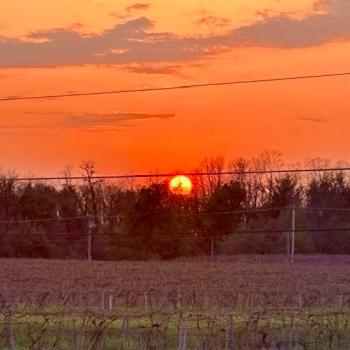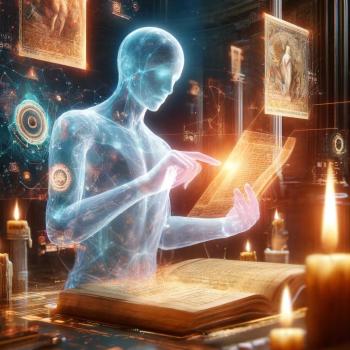Editor's Note: This is the seventh in a series telling the stories of significant black Mormons in history. Read earlier posts:
- The Introduction to the series
- The story of Jane Manning James
- Pastor Hinckley's apology for racism
- The story of Green Flake
- The story of Quaku Walker Lewis
- Romney and Race
I was not so well placed as these young brethren here, most of you were born in the church. I was born in a condition of slavery, and received the gospel in that condition. I realized I had done right. I received the spirit of God. I was only between 12 and 13 years of age. I was from 23 to 25 years and never heard another word of the gospel. After the war I was made free, then I went to work 4 years and made money and came out here. It is not only to the Gentiles but also to the African, for I am of that race. (Samuel D. Chambers, December 8. 1874)
Though the photo of Samuel and Amanda Chambers on the Freedman Bank CD for genealogical research is commonly seen, their lives are not well known. Samuel Davidson Chambers did not join the pioneer trek with other Mormons in 1847. He was still enslaved, having been baptized in 1844, seventeen years before the Civil War began.
As did so many slaves, Sam saw his family divided when his mother was sold off. Later, it was his wife who was taken, though the records are unclear as to whether she died or was sold.
Slaveholders often disregarded family relations among their "property" and easily separated parents from their children. As we review the horrors of slavery, these divisions are particularly heart wrenching. The act of splitting up a family, especially when done by compulsion, should motivate us to reassemble what was fragmented, to speak their names. We recognize each name as sacred, the one thing that survives on a tombstone to remind us that a life was lived, grief borne, joy celebrated. Each belongs to parents, usually to a spouse, to their children.
Samuel Chambers was born May 21, 1831, in Pickens County, Alabama, but was soon sent to Mississippi. There, he heard Mormon missionaries and was persuaded that their message was true. Elder Preston Thomas secretly baptized him at night. Sam was between twelve and thirteen years old, though when he reflected upon his youth in later life, he did not find it strange that he should have found his faith at such a young age. "Joseph was a boy and also Samuel, and the Lord spoke to them, so we see the Lord is willing to speak to boys," Sam said on December 14, 1875. He kept this secret baptism to himself until his emancipation, and later testified, "I did not come to Utah to know of the truth of the gospel, but I received it away back where the gospel found me."
Amanda Leggroan was Sam's second wife, and considerably younger than he. Sam's son, Peter, accompanied them on the trek. Amanda's brother, Edward [Ned] Leggroan and his bride Susan also left slavery behind and joined the Mormons in Utah. Ned and Susan would eventually have eleven children, several of whom married descendants of other black pioneers.
We have many of Sam's testimonies because of the careful notes of stake clerk Thomas C. Jones in the Salt Lake City eighth ward, and later from the journal of Bishop Devalson Cummings in the Wilford Ward.
Sam talked about his slavery in several of his testimonies:
I'm glad that I ever took upon me the name of Christ. . . . I thank God, for my soul burns with love for the many blessings I enjoy. I've been blest from youth up, although in bondage for 20 years after receiving the gospel, yet I kept the faith.
Of course, because the priesthood restriction was in effect by the time the Chambers family arrived in Utah, Samuel and Amanda were identified by their race and were denied privileges that white Saints could easily partake of. Nonetheless, they were respected. Fellow ward member James Leach said of Sam: "I love to hear my brethren talk. Brother Chambers likewise. He will be a mighty man. There are not many of his kindred in this church. If we are faithful we don't know what the Lord has in store for us, if we will do his will."




